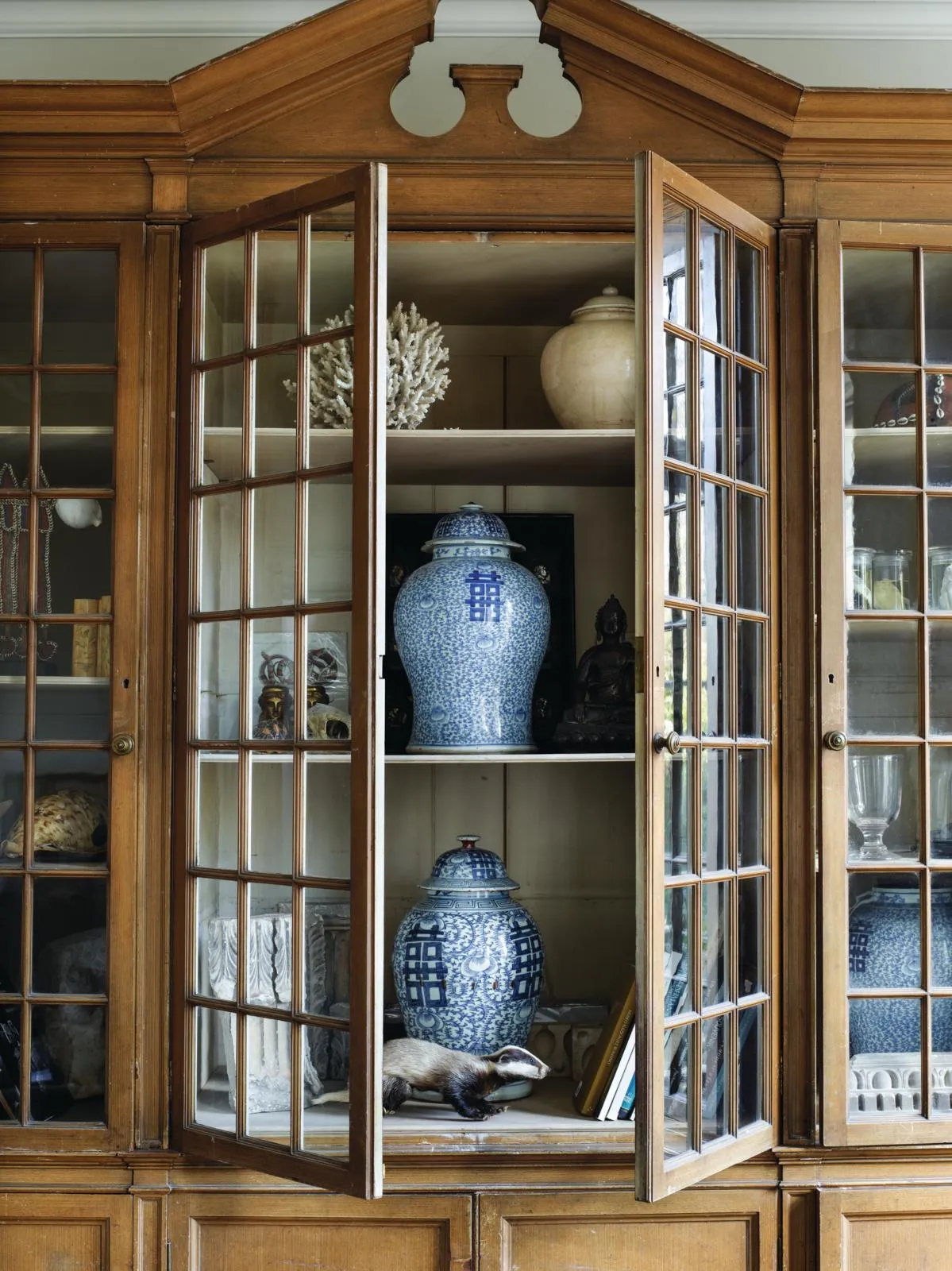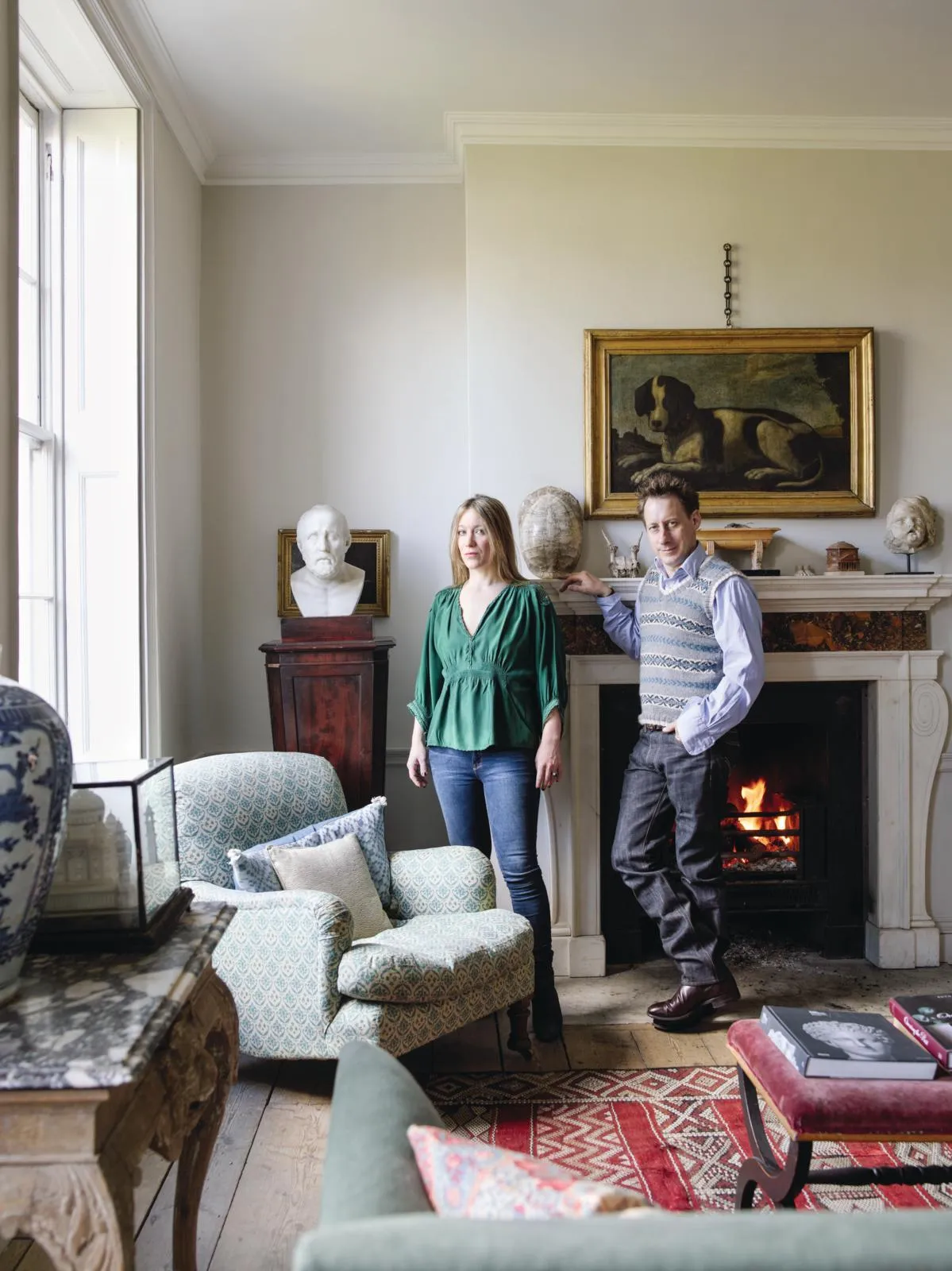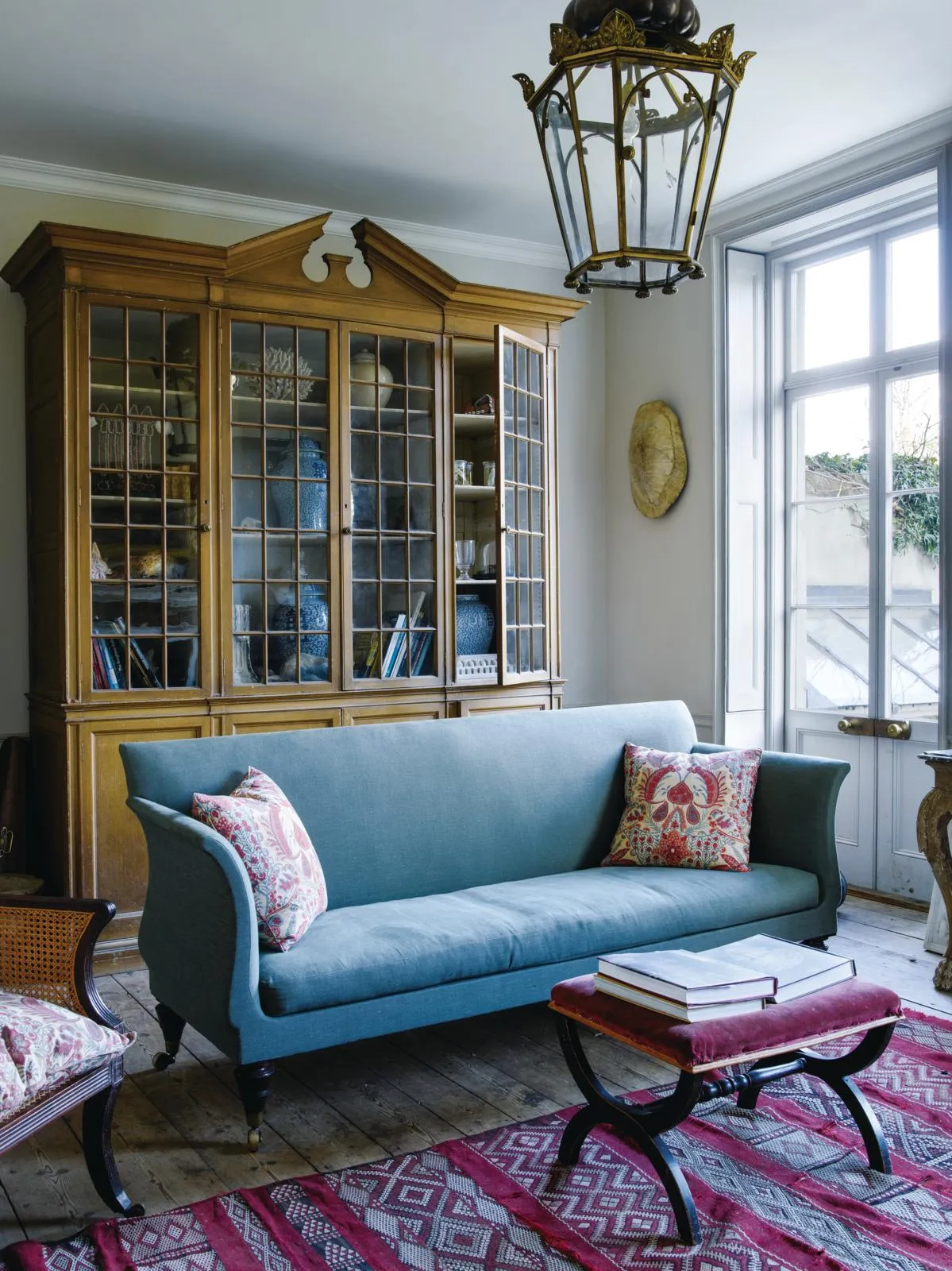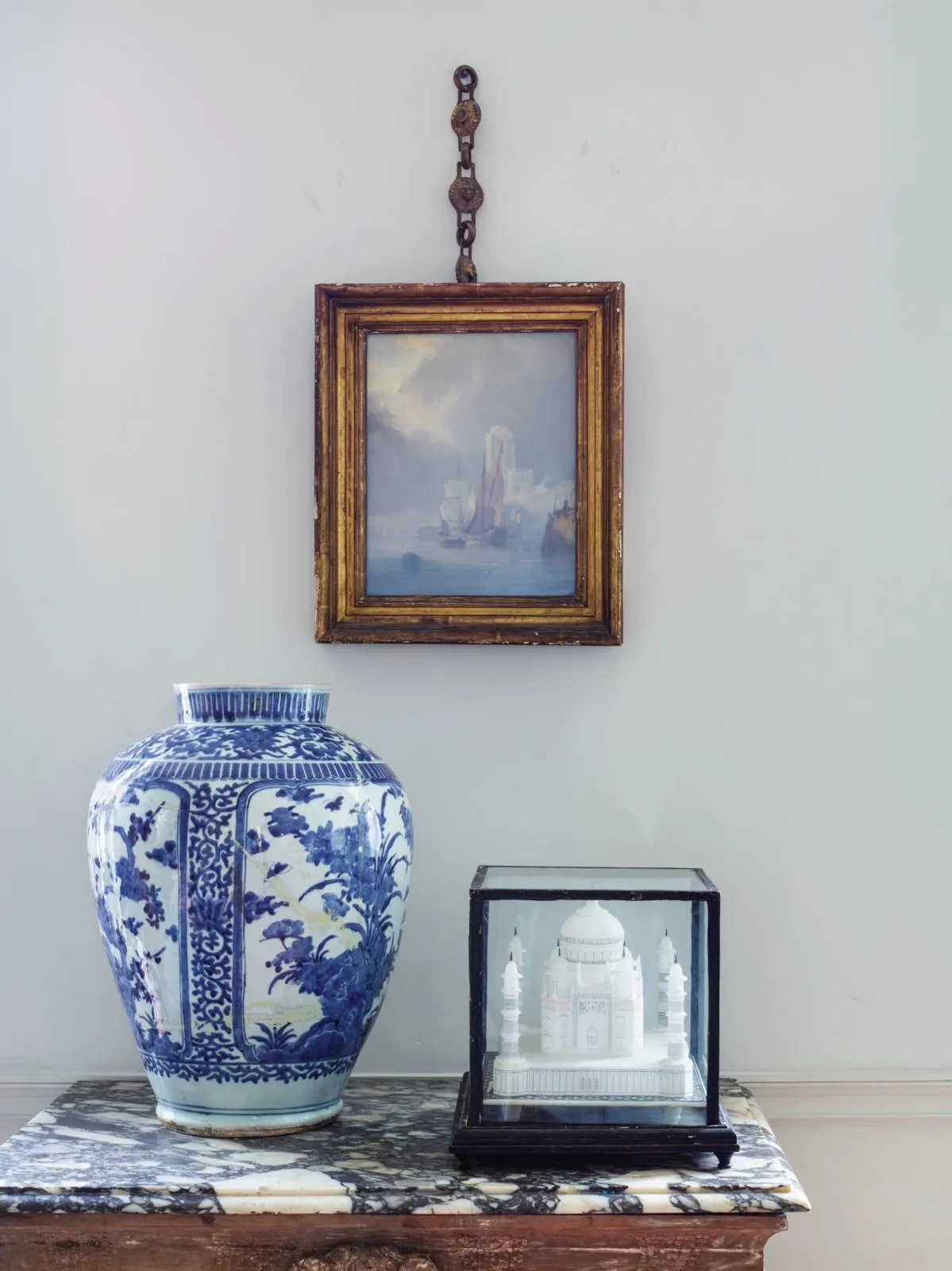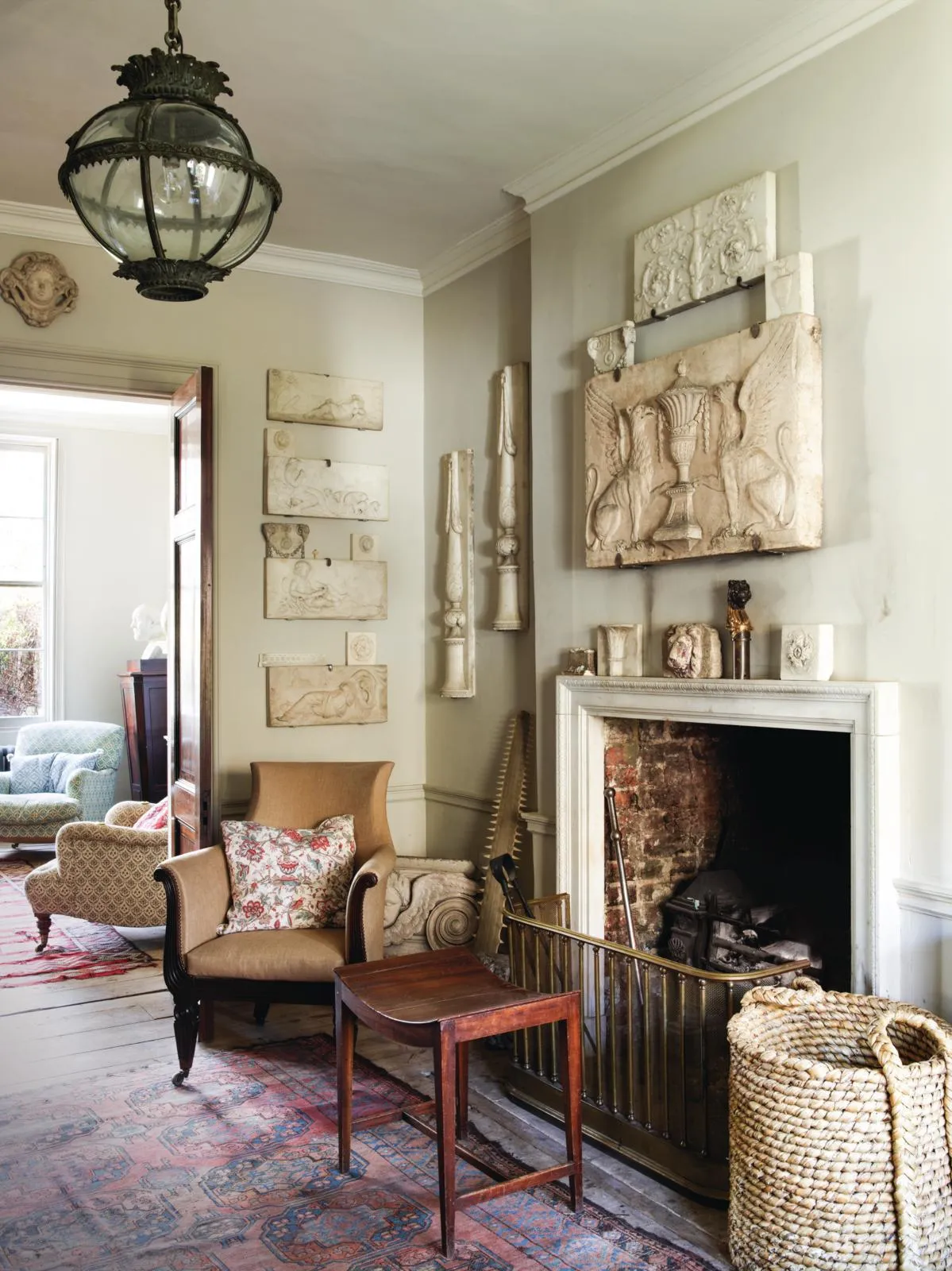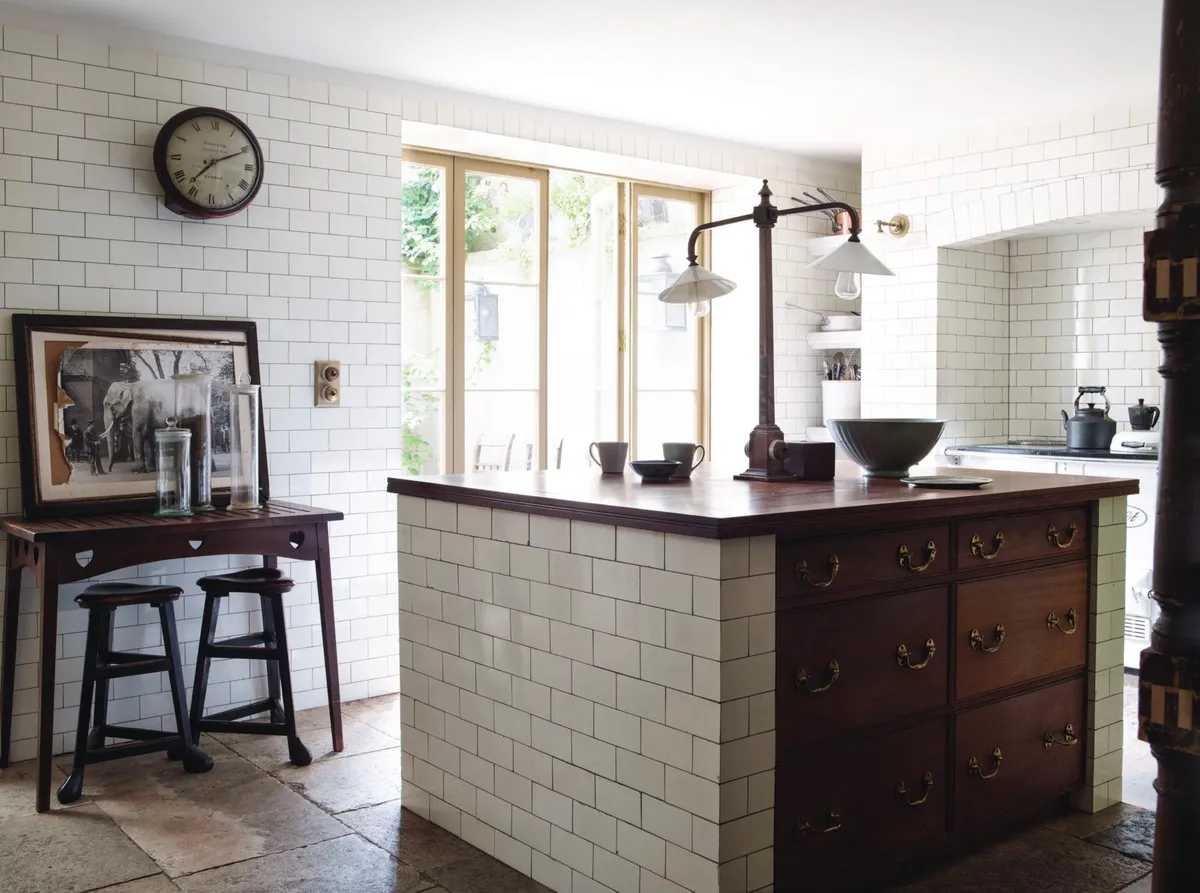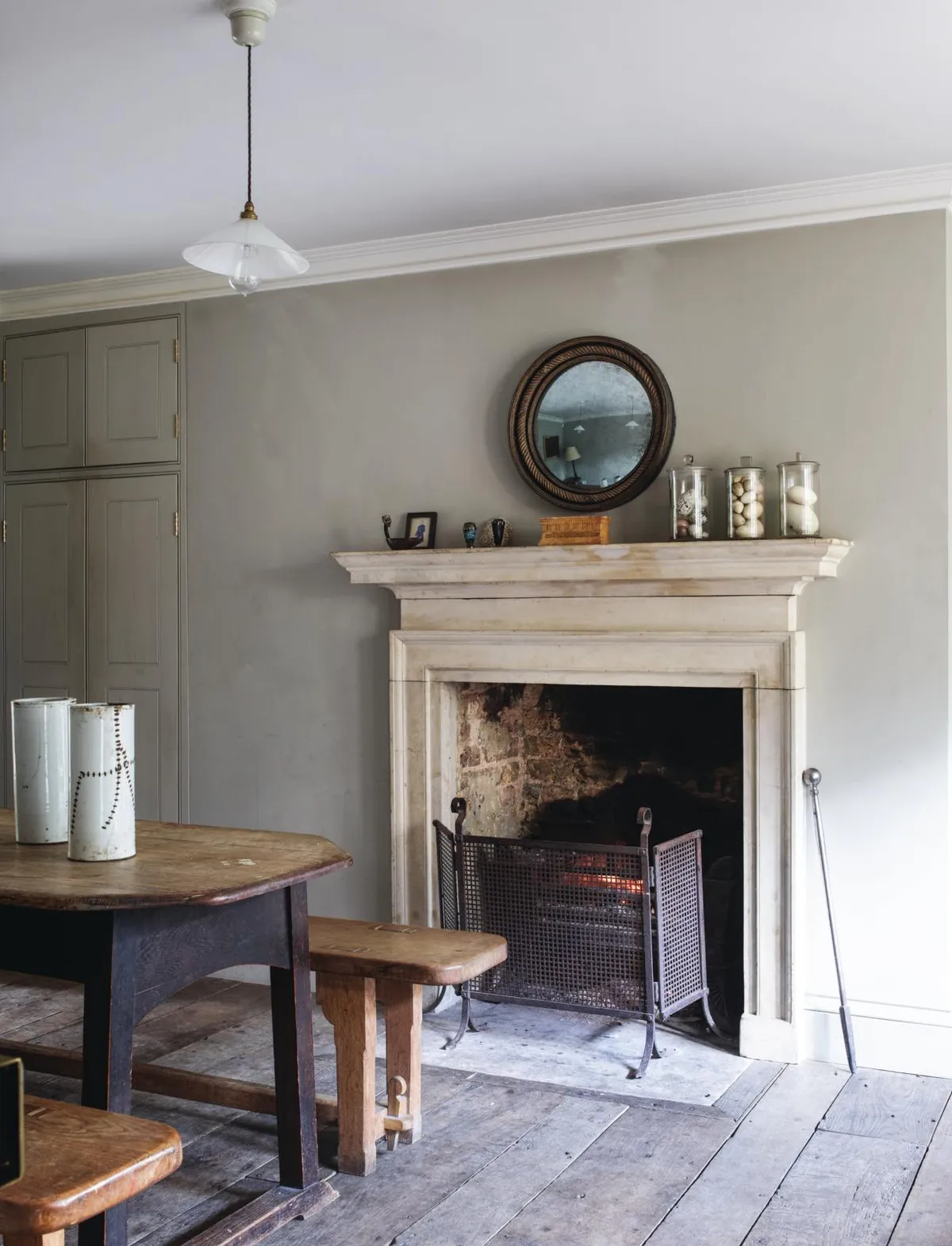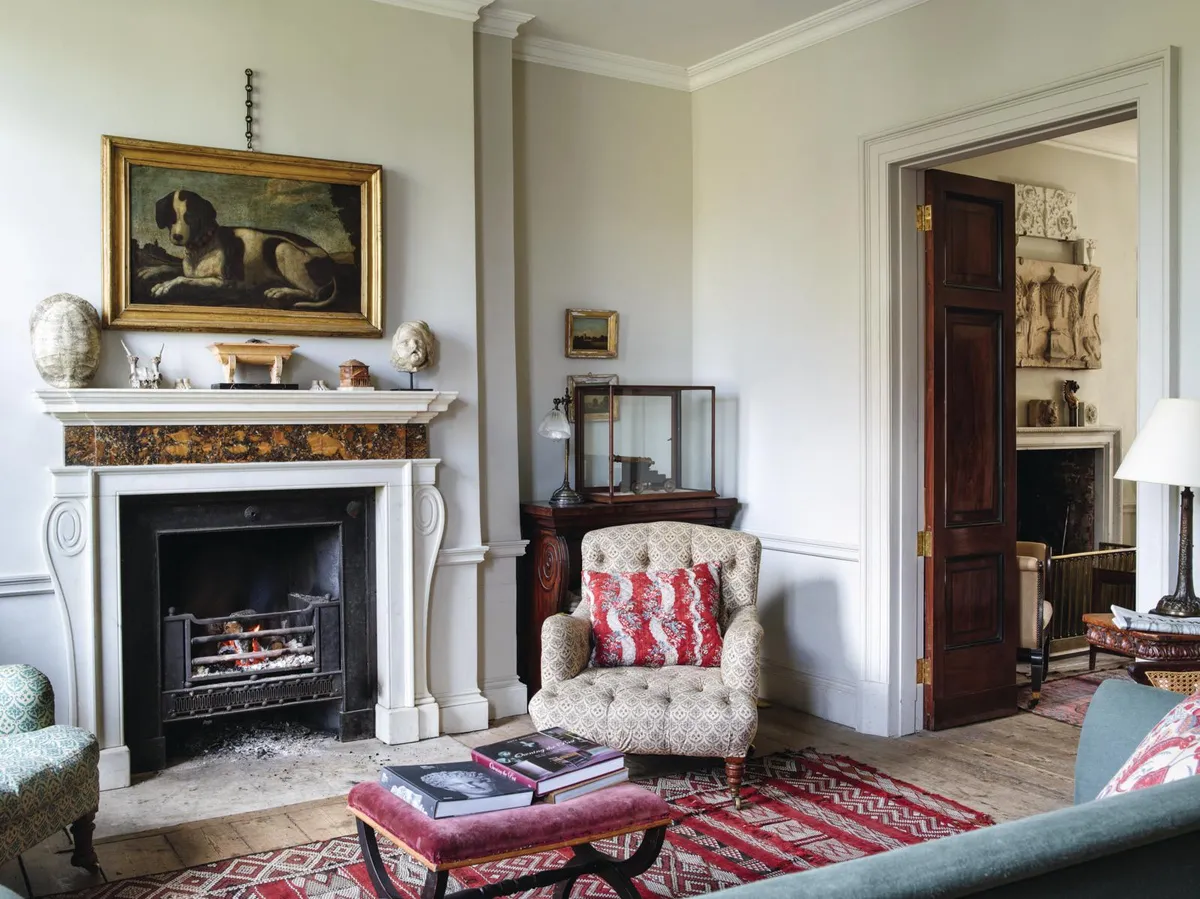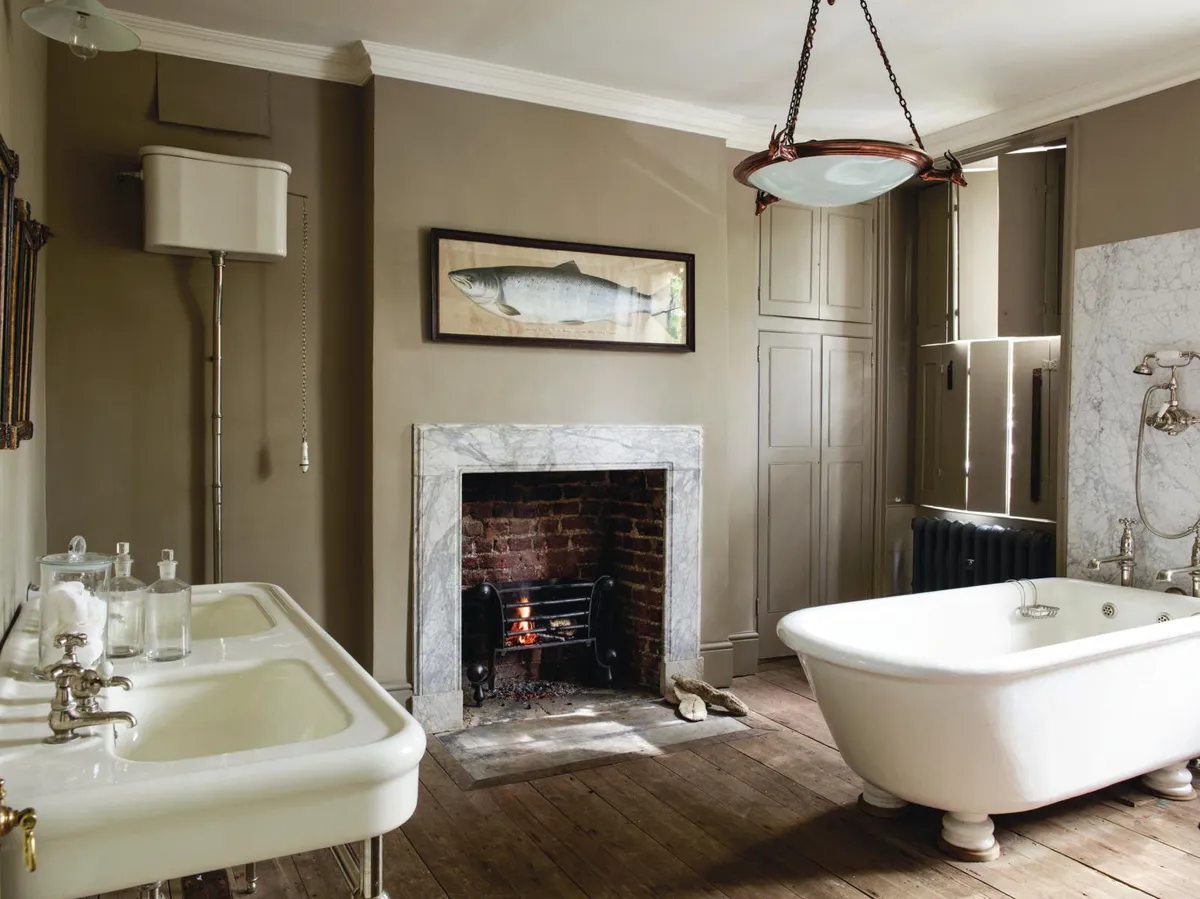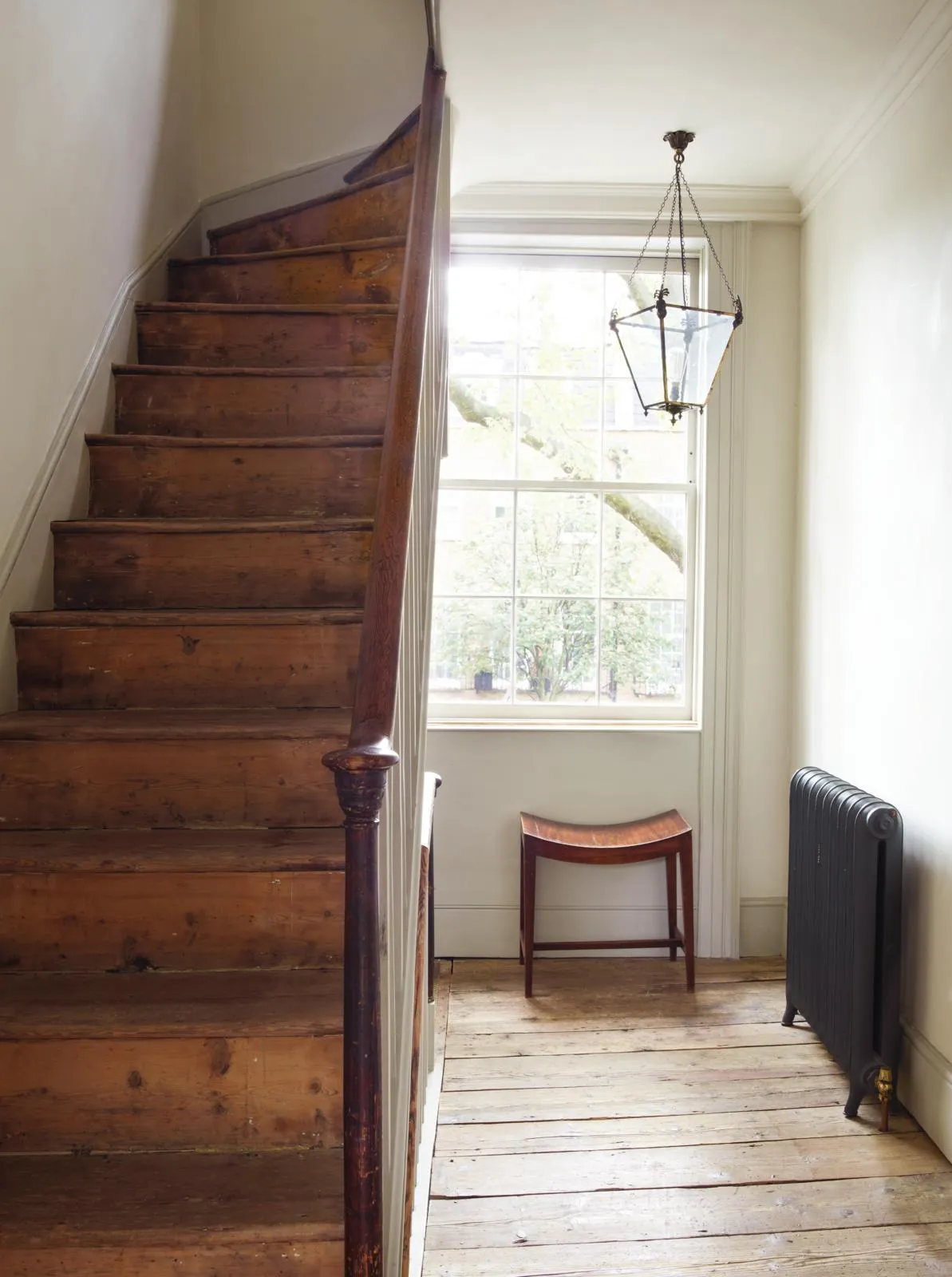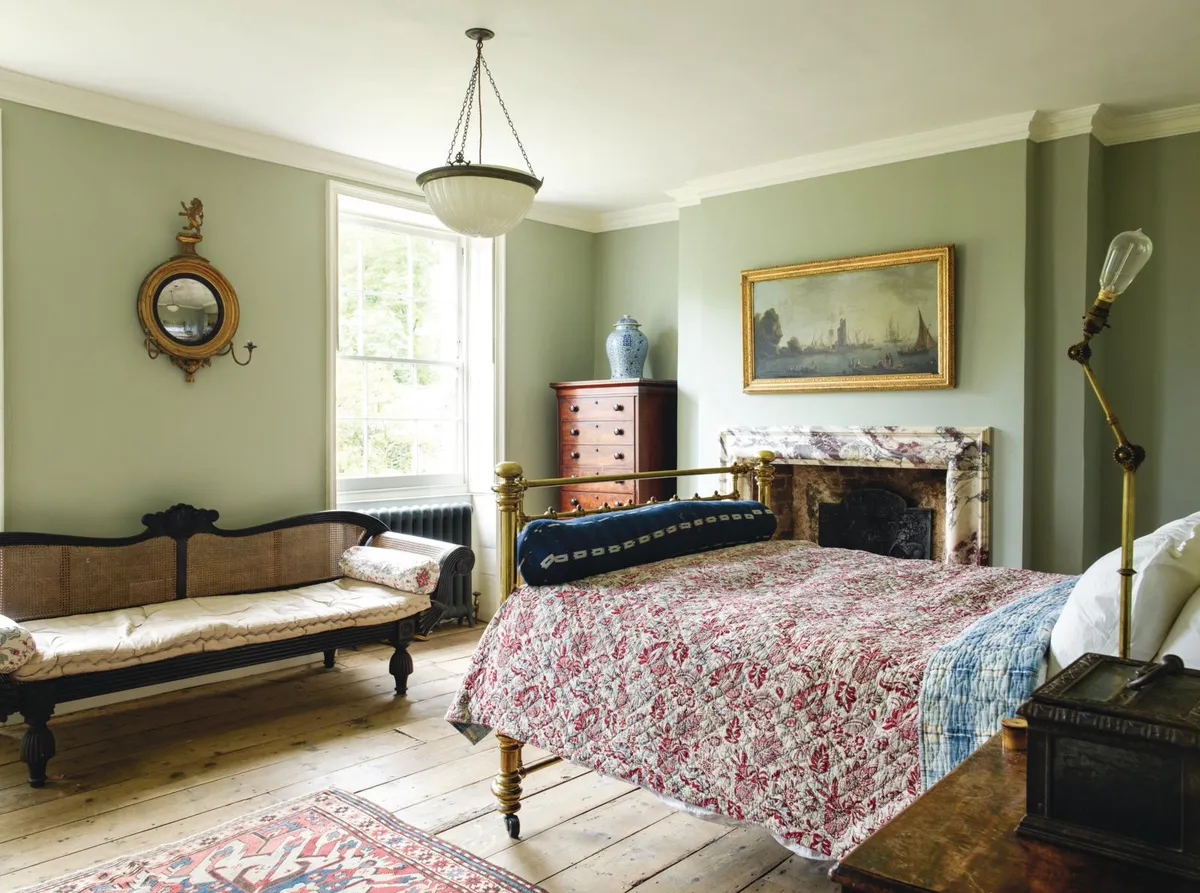Antiques dealer Will Fisher can’t pinpoint the exact moment his passion for antique chimney pieces began. But by the tender age of 12, he had bought, restored and resold his first fireplace. ‘I must have been a bit of a pyromaniac,’ he says, describing how at around the same age he also restored the fireplace in his bedroom, installing a grate and regularly lighting the fire.
And in a lovely role-reversal that any child of antiques-loving parents will appreciate, Will frequently begged his parents (both of whom were Marxist teachers), to take him to visit stately homes. Ragley Hall in Warwickshire, was a favourite and is the source of his abiding passion for all things Palladian.
Antiques-related jobs filled his teenage years, including a brief stint at Christie’s, which led to the realisation, he says, ‘that basically, I’m unemployable!’ He started and then quit an art history degree in favour of the hands-on education that only the world of dealing and collecting could provide: working shifts driving a forklift truck while running a stall in Bermondsey.
He also worked as a runner, which he loved. ‘Runners are the lifeblood of the trade. They’re single sole traders who “run” between antiques shops and auction houses, independently buying and selling,’ he explains, recalling the buzz. ‘It was addictive and I’ll never forget the first £80 I made.’ Although it was an object so awful he won’t say what it was, ‘but, God, the 80 quid was lovely.’
These days, business is conducted from a smart showroom on London’s Pimlico Road, rather than the back of a van. Jamb, which he runs with his wife, Charlotte Freemantle, is renowned for its antique English chimney pieces and its exquisite reproductions. Their home in Camberwell, south-east London, epitomises the company’s elegant aesthetic. Will describes it as ‘a faded country house in miniature’.
But nine years ago, when they moved in, the house was beyond faded. It was in a parlous state and ‘very much the ugly duckling of the street’. Charlotte was pregnant with their daughter Eliza, so they waited a year before embarking on a six-month renovation. The concept, says Will, ‘was to completely alter the house in such a way that it felt as though nothing had been touched’. To that end they opted for bare, unpainted boards and muted colours. ‘It’s a lazy man’s way of doing things,’ says Will. ‘Make it look timeless and then you only have to do it once.’
Timeless it may be, but lazy it wasn’t. The project took two and a half years, rather than six months. Work on the kitchen alone involved sourcing tiles that originated from the New York subway, via a New York reclamation yard, which were sent back because they didn’t have enough crackle in the glaze. Fortunately, a second, older, batch made the grade.
Will also agonised over how best to lay the 18th-century Purbeck slabs on the floor – deciding on courses after much painstaking research, which involved dragging the family round numerous stately piles. ‘I fell out with my wife, fell out with my neighbours and fell in love with my builder,’ laughs Will, summing up.
Despite his obsessive attention to detail in terms of materials and finishes, Will has taken a quietly anarchic approach to the way that they are deployed. ‘It’s an old cliché,’ he says, ‘but rules are there to be broken. And as long as it’s not pretentious or try-hard, turning things around can read quite well.’
This can be as subtle as reversing the hierarchy of materials (pine floorboards upstairs, oak in the basement), or an unexpectedly dramatic touch, such as the fireplace in the dining room, which ‘shouldn’t really work proportionally,’ says Will, yet somehow it ‘makes’ the space.
Three years ago, Will auctioned 500 of his pieces at Christie’s – both from his home and business. ‘I found myself wanting to sell everything, by the end I’d have pulled out the kitchen sink if they’d asked for it,’ he says.
Once the wheels were in motion there was no going back, but it offered one big positive that any collector can empathise with: ‘once it had all gone there was room for more. There is always something else to covet, to purchase.’ So he was able to start again – finding new pieces that fitted his very specific look: beautiful antiques, elegant curiosities and, unsurprisingly, Georgian chimneypieces in every room.
A self-confessed despot and perfectionist when it comes to all the decisions relating to the house, Will is surprisingly sanguine about mixing young children and priceless antiques. ‘I’ve given up entirely on trying to child-proof the house. What they don’t destroy, they graffiti,’ he sighs. Occasionally, however, the antiques retaliate. While mucking about with the 19th-century sawfish that resides in the corner of the sitting room, Monty dropped it on his foot and the bite marks necessitated a trip to A&E.
